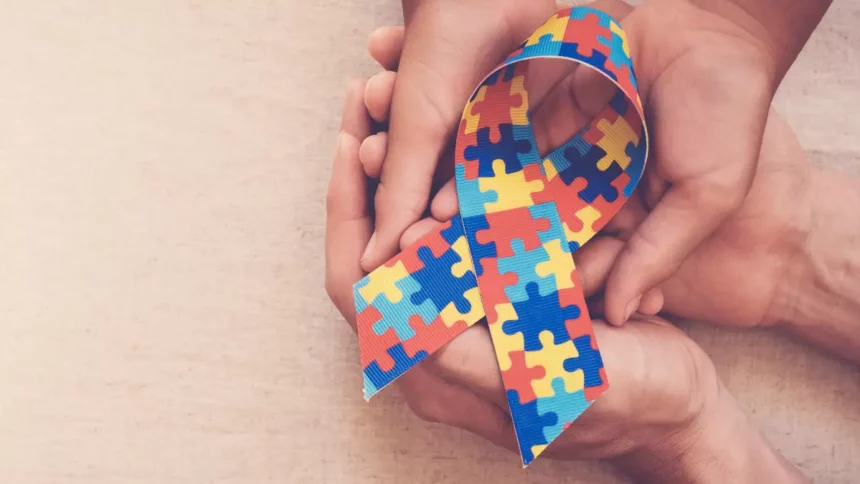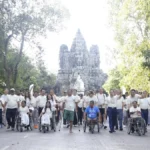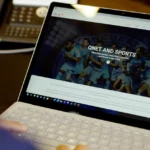The world is constantly evolving, and so is our understanding of neurodiversity. As we strive towards creating a more inclusive world, it is essential to recognise and celebrate the unique strengths of every individual, including those with neurodiverse conditions. In today’s society, promoting neuro-inclusion is not only a moral imperative, but it also has the potential to unleash the untapped potential of millions of individuals who are often excluded from society.
On #RYTHMConnect, RYTHM Foundation Chairperson Datin Sri Umayal Eswaran hosted an in-depth conversation which tackled Autism awareness, acceptance, and inclusion in society, as well as how to create a better world for everyone without exception. Here are the most important lessons we have learned from this episode.
What Is #RYTHMConnect?
#RYTHMConnect is an online conversation series hosted by RYTHM Foundation Chairperson Datin Sri Umayal Eswaran, often featuring experts, partners, and social activists. They tackle important topics related to charitable work and building a better world. This episode’s guests who contributed to the lively and enlightening discussion included the Secretary of National Autism Society of Malaysia Anne Sivanathan, Founder of the Autism Café Project Mohd Adli Yahya, and QNET CEO Malou Caluza who is a parent to a son with autism.
To kick off Autism Awareness Month, Datin Sri Umayal set the tone with a fantastic quote by Debra Ruh, an American activist advocating for the rights of persons with disabilities – “The only disability is when people cannot see human potential.”
Understanding Autism Spectrum Disorder (ASD)
Current estimates indicate that 1 in 100 children worldwide are born with autism, and yet, they are left out of society in so many shocking ways. 2 out of 3 people with autism are unemployed suggesting that creating an inclusive society is more important than ever.
In her #RYTHMConnect conversation, Datin Sri Umayal shone a spotlight on a World Bank finding that social inclusion improves how individuals and groups participate in society. Specifically, inclusion enhances the ability and dignity of the disadvantaged. “People tend to perceive individuals on the spectrum or other disabilities as entirely dependent on others and lacking the ability to contribute economically or socially,” she added.
Speaking on her own son’s journey, QNET CEO Malou Caluza said, “We need teachers and places that honestly support them by spending time with them. The teachers who made a difference for Erwin were the ones who took the time to know him and understand his abilities. Erwin learned to swim and even competed in special games because one coach noticed he loved the water. We need people like this who will not judge them.”
3 Ways To Build A More Inclusive World
This episode of #RYTHMConnect talks about how the task to create a more inclusive world falls on all of us. We all have the responsibility to Raise Yourself To Help Mankind so that we leave the world a better and more joyful place than we found it. Keeping that in mind, here are practical tips on how you can help create a more inclusive world for those who live on the spectrum.
1. Focus On People’s Strengths
Instead of focusing on the challenges that a person with autism faces, choose to focus on their strengths. Just like every single one of us have different strengths and areas we are better at than others, people with autism also deserve the opportunity to showcase theirs. Create opportunities for them in day-to-day society and watch us all thrive as one human race.
2. Include Neurodiverse People In Your Friend Circle
Diversifying your friendship circle is the best way to promote empathy and a more inclusive world. Your interaction with people with autism shouldn’t just be a volunteer project you do once a year. Include people of all abilities in your life, not just neurotypical people.
3. Learn And Spread Awareness On Autism
Show your support by spreading the word on Autism and the importance of creating an inclusive world so that all of us can thrive. Wear a t-shirt of your favourite charity and use it as a conversation starter, talk about it on your social media, spend time volunteering with your favourite charities, learn more about it online. Don’t be shy to educate yourself by having conversations with experts on topics you have questions about.
You can read a full recap of the #RYTHMConnect conversation on Autism Awareness in the RYTHM Foundation website.






